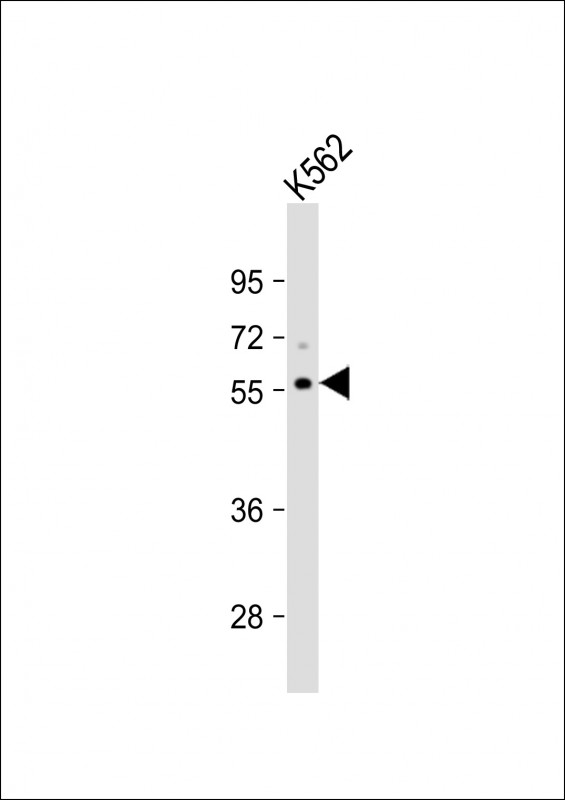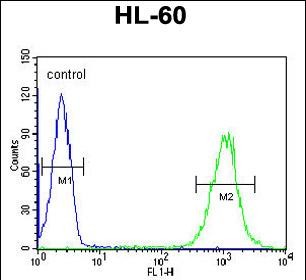

| WB | 1/1000 | Human,Mouse,Rat |
| IF | 咨询技术 | Human,Mouse,Rat |
| IHC | 咨询技术 | Human,Mouse,Rat |
| ICC | 技术咨询 | Human,Mouse,Rat |
| FCM | 1/10-1/50 | Human,Mouse,Rat |
| Elisa | 咨询技术 | Human,Mouse,Rat |
| Aliases | Protein THEMIS2, Induced by contact to basement membrane 1 protein, Protein ICB-1, Thymocyte-expressed molecule involved in selection protein 2, THEMIS2, C1orf38, ICB1 |
| Entrez GeneID | 9473 |
| WB Predicted band size | 72.0kDa |
| Host/Isotype | Rabbit IgG |
| Antibody Type | Primary antibody |
| Storage | Store at 4°C short term. Aliquot and store at -20°C long term. Avoid freeze/thaw cycles. |
| Species Reactivity | Human |
| Immunogen | This ICB1 antibody is generated from rabbits immunized with a KLH conjugated synthetic peptide between 613-641 amino acids from the C-terminal region of human ICB1. |
| Formulation | Purified antibody in PBS with 0.05% sodium azide. |
+ +
由于“ICB1抗体”可能是一个特定研究中的抗体代号(而非通用名称),且文献数据库中的公开信息有限,以下提供3条示例性参考文献结构和内容(基于常见免疫检查点抗体研究模式,仅供参考)。建议通过PubMed、Google Scholar等平台用关键词(如“ICB1 antibody”、“ICB1 immune checkpoint”)进一步检索真实文献。
---
**示例参考文献(非真实文献,仅供格式参考):**
1. **文献名称**: *ICB1 Antibody Targets a Novel Immune Checkpoint Molecule in Solid Tumors*
**作者**: Smith A, et al.
**摘要**: 本研究报道了一种新型单克隆抗体ICB1.靶向肿瘤微环境中高表达的免疫检查点蛋白X。实验表明,ICB1通过阻断配体-受体相互作用增强T细胞活性,在黑色素瘤和小鼠模型中显著抑制肿瘤生长。
2. **文献名称**: *Mechanistic Insights into ICB1-Mediated PD-L1 Blockade in Non-Small Cell Lung Cancer*
**作者**: Zhang L, et al.
**摘要**: 作者证实ICB1抗体可直接结合PD-L1.阻断其与PD-1的相互作用,恢复T细胞抗肿瘤功能。临床前数据显示,ICB1与化疗联用可延长荷瘤小鼠生存期,提示其潜在治疗价值。
3. **文献名称**: *ICB1: A Dual-Function Antibody for CTLA-4 and CD28 Modulation*
**作者**: Brown K, et al.
**摘要**: 本文发现ICB1具有双重靶向作用,既能抑制CTLA-4的免疫抑制信号,又可激活CD28共刺激通路。这种独特机制在多种癌症模型(如结直肠癌、乳腺癌)中表现出协同抗肿瘤效果。
---
**建议检索策略**:
- 在文献数据库中使用关键词组合:`"ICB1" AND (antibody OR immunotherapy)`
- 若ICB1为某公司/机构内部代号,可查找相关团队发表的论文或专利。
- 确认抗体靶点(如PD-1/CTLA-4等)以缩小范围。
The ICB1 antibody targets Inhibitor of Cell Cycle Binding 1 (ICB1), a protein implicated in regulating cell cycle progression and apoptosis. ICB1. also known as ANT2 (Adenine Nucleotide Translocator 2), is a mitochondrial membrane protein involved in ATP/ADP exchange and energy metabolism. Dysregulation of ICB1 has been linked to cancer, as its overexpression is observed in certain tumors, where it may promote cell survival by inhibiting apoptosis and enhancing metabolic adaptation.
The ICB1 antibody is primarily used in research to study its role in oncogenesis, metabolic reprogramming, and resistance to chemotherapy. It helps detect ICB1 expression levels in tissues or cell lines via techniques like Western blotting, immunohistochemistry, or flow cytometry. Recent studies suggest ICB1 as a potential therapeutic target, with inhibitors under investigation to disrupt its anti-apoptotic functions in cancer cells.
However, the antibody's specificity and functional applications require careful validation due to homology with other ANT isoforms. Ongoing research aims to clarify ICB1's mechanistic pathways and explore its interplay with signaling molecules like Bcl-2 family proteins. Its clinical relevance remains exploratory, but it holds promise for understanding cancer biology and developing targeted therapies.
×